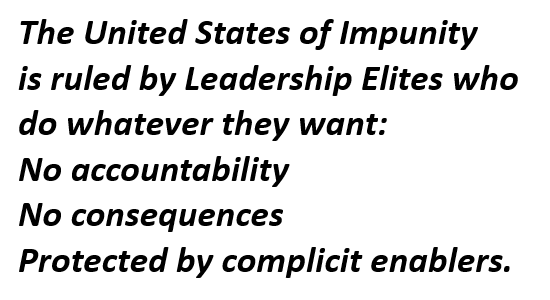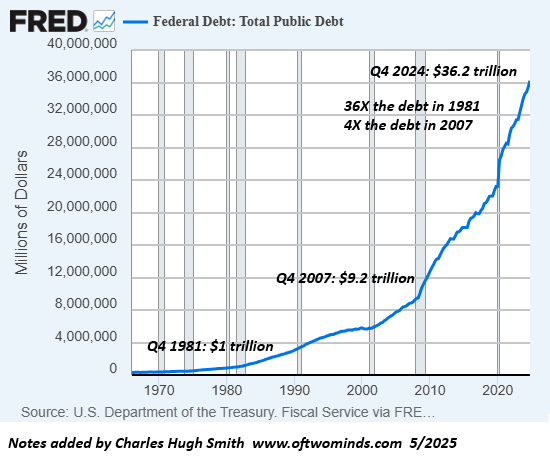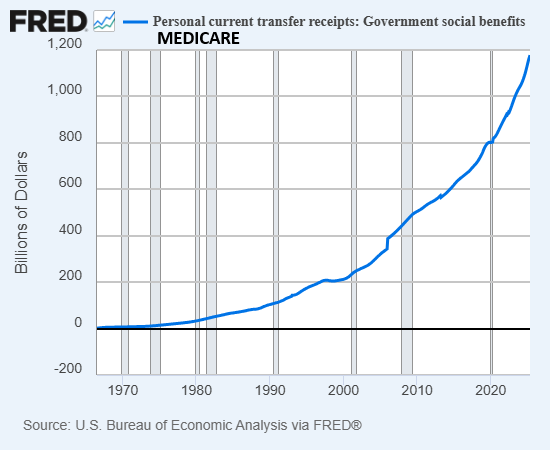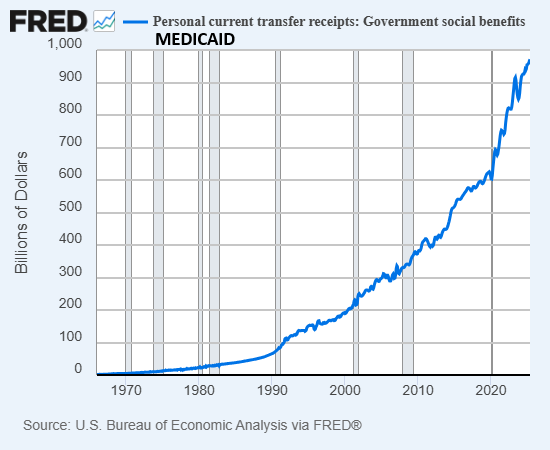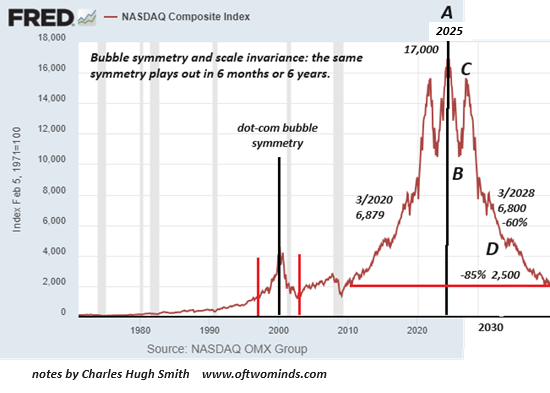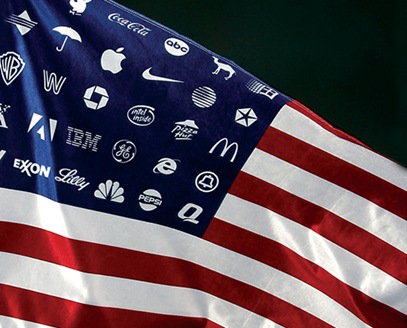Can the Developed World Grow Its Way Out of Stagnation?
If we borrow all of tomorrow's prosperity to spend today, there won't be any future prosperity, there will only be penury.
The developed nations share many of the same sources of stagnation:
1. Demographically, their cohort of retirees drawing government benefits is expanding with no end in sight while their workforces are shrinking;
2. Their models of funding government programs institutionalized 50, 60 or 70 years ago no longer provides enough income to cover government spending;
3. As their populations age, demand/consumption is stagnating as older people spend less on everything other than healthcare, and the cohort of younger people getting married and starting families is in steep decline;
4. Attempts to stimulate consumer spending via central bank/state stimulus are now increasing inflation, crimping both household and state spending as debt service costs rise;
5. Institutionalized processes that worked in the "boost phase" of economic growth are now hindrances as following established processes are the focus rather than adapting to get results;
6. The expedient "solution" to soaring demands for government spending (healthcare and retirement programs are now a third or more of state expenditures) is to fund spending with borrowed money--selling government bonds which then increases the nation's sovereign debt and the interest that must be paid on that swelling debt;
7. The low-hanging fruit in the economy have all been plucked, and while there are high hopes for an energy transition and AI, there are no guarantees these will boost productivity enough to generate the growth needed to "grow our way out of debt;"
8. The proposed solutions are all forms of financial engineering--lowering interest rates, introducing stablecoins, etc., all intended to lower the cost of borrowing from the future to stimulate "growth" today in the hopes of "growing our way out of stagnation and debt."
Richard Bonugli and I discuss these core issues in our podcast
The Challenges of the G7 world (33 minutes), issues which boil down to one basic question: is pulling the levers of financial engineering enough to "grow our way out of stagnation and debt," or are more fundamental reforms required?
The key to "growing our way out of stagnation and debt" is to boost productivity. In the podcast, I refer to Total Factor Productivity, which is an attempt to "capture the 'secret sauce' of how an economy or business produces more output with the same or fewer inputs."
This 'secret sauce' includes efficiency, technological innovation and the cultural-social foundations which are often overlooked in conventional economics--for example, "free markets" only function in high-trust societies.
If we're squandering money borrowed from the future on superfluous consumption, is this enough to "grow our way out of stagnation and debt," or is this expansion of debt to fund unproductive consumption actually increasing the stagnation and debt?
As a generality, the developing world has more favorable demographics and a more positive growth profile as there is still a relative abundance of low-hanging fruit in terms of infrastructure and ways to increase productivity that can be developed with prudent investments of capital and labor.
Among the developed nations, various policies are being tried to manage soaring budgets and stagnating revenues, but the pressure points of interest rates and risk are difficult for any one one nation to control in a still-globalized world economy.
Every central bank wants to lower interest rates to make it cheaper for the government, enterprises and consumers to borrow more money, but risk and inflation are not controllable with the levers of financial engineering.
Consider Japan as an example of an advanced economy struggling to balance all these variables and sources of stagnation. The central government's revenues are stagnant while the interest payments on the sovereign debt rises along with the debt itself and the risk premium that comes with increasingly burdensome debt loads:
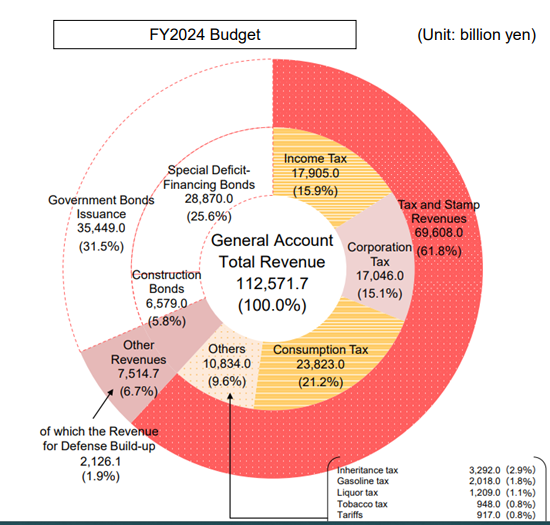
On the expenditure side, the costs of an expanding population of elderly retirees who need healthcare but are no longer working are also expanding:
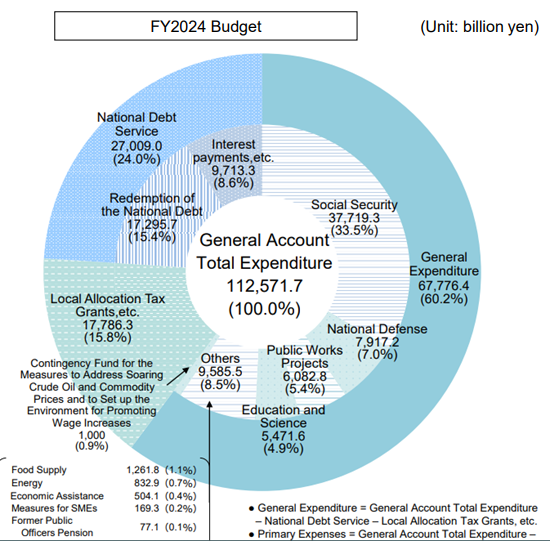
It's natural to indulge in the fantasy that pulling the levers of financial engineering will square the circle of "fixing" mismatched revenues and spending with more debt, but indulging in fantasies only delays our eventual need to look for real solutions rather than rely on borrowing more money from tomorrow's prosperity, for if we borrow all of tomorrow's prosperity to spend today, there won't be any future prosperity, there will only be penury.
New podcast:
The Challenges of the G7 world (33 minutes) Can we grow our way out of stagnation and debt?
Check out my new book Ultra-Processed Life and my new fiction/novels page.
Become
a $3/month patron of my work via patreon.com.
Subscribe to my Substack for free
My recent books:
Disclosure: As an Amazon Associate I earn from qualifying purchases originated via links to Amazon products on this site.
Ultra-Processed Life print $16, (Kindle $7.95, Hardcover $20 (129 pages, 2025) Read the Introduction and first chapter for free (PDF)
The Mythology of Progress, Anti-Progress and a Mythology for the 21st Century print $16, (Kindle $6.95, Hardcover $24 (215 pages, 2024) Read the Introduction and first chapter for free (PDF)
Self-Reliance in the 21st Century print $15, (Kindle $6.95, audiobook $13.08 (96 pages, 2022) Read the first chapter for free (PDF)
When You Can't Go On: Burnout, Reckoning and Renewal $15 print, $6.95 Kindle ebook; audiobook Read the first section for free (PDF)
Global Crisis, National Renewal: A (Revolutionary) Grand Strategy for the United States (Kindle $6.95, print $16, audiobook) Read Chapter One for free (PDF).
A Hacker's Teleology: Sharing the Wealth of Our Shrinking Planet (Kindle $6.95, print $15, audiobook $17.46) Read the first section for free (PDF).
Will You Be Richer or Poorer?: Profit, Power, and AI in a Traumatized World
(Kindle $3.95, print $12, audiobook) Read the first section for free (PDF).
The Adventures of the Consulting Philosopher: The Disappearance of Drake (Novel) $3.95 Kindle, $12 print); read the first chapters for free (PDF)
Money and Work Unchained $6.95 Kindle, $15 print) Read the first section for free
Become a $3/month patron of my work via patreon.com.
Subscribe to my Substack for free
NOTE: Contributions/subscriptions are acknowledged in the order received. Your name and email remain confidential and will not be given to any other individual, company or agency.
|
Thank you, Janet D. ($3/month), for your exceedingly generous subscription to this site -- I am greatly honored by your support and readership. |
Thank you, Shawn ($7/month), for your marvelously generous subscription to this site -- I am greatly honored by your support and readership. |
|
|
Thank you, Randy G. ($70), for your superbly generous subscription to this site -- I am greatly honored by your support and readership. |
Thank you, Frans L. ($70), for your splendidly generous subscription to this site -- I am greatly honored by your support and readership. |





















